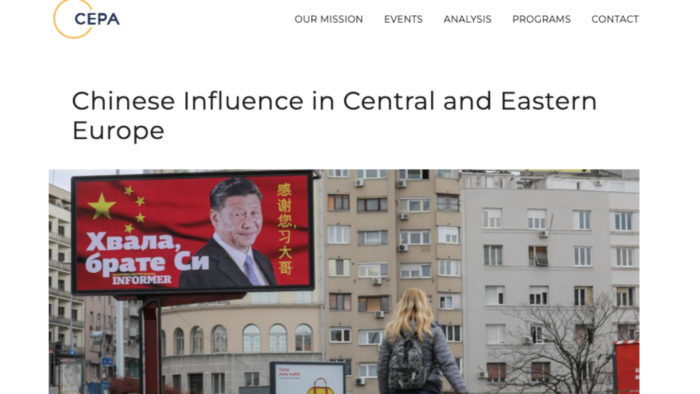German media is reporting on China’s weakening influence in Eastern Europe, arguing that with Sino-American tensions rising, Chinese activities in the region are being increasingly restricted. According to an International Politics and Society report:
May 5, 2021 The activities of Chinese investors are increasingly being restricted in CEE countries. For instance, in May 2020, Romania cancelled a deal with China to build two new nuclear reactors in Cernavoda. Following Washington’s lead, Poland, the Czech Republic, Romania, and Estonia all plan to restrict Huawei’s operations in their respective countries. The region is also voicing stronger criticism of China’s policy on national minorities, Hong Kong and human rights in general. Ukraine’s decision regarding the nationalisation of the Motor Sich Joint Stock Company can be considered in keeping with the overall regional trend. […] The European market is certainly of great interest to China, and the countries of Central Asia and Eastern Europe are important as routes and corridors. But in the changing geopolitical realities, the price of political issues is dramatically increasing — including the very issues which China is doing its best not to raise or even is trying to ignore.
Read the rest here.
International Politics and Society is an online journal launched by Germany’s Friedrich-Ebert-Stiftung, a political foundation affiliated with Germany’s Social Democratic Party.
Contrary to this view, we reported last week that China is expanding its influence in Eastern Europe using Hungarian and Serbian universities. Other recent GIOR reporting on China’s influence operations in Eastern Europe has included:
- In May, we recommended a study assessing China’s soft power in 17 European countries, including Hungary, the Czech Republic, Slovakia, and Romania.
- In May, we reported that China is laundering its propaganda in the Czech Republic through local ‘alternative media’ disinformation outlets.
- In April, we reported that even though most of Europe has blocked Huawei’s ability to build 5G infrastructure, China’s influence in Europe is still increasing through academic partnerships.












